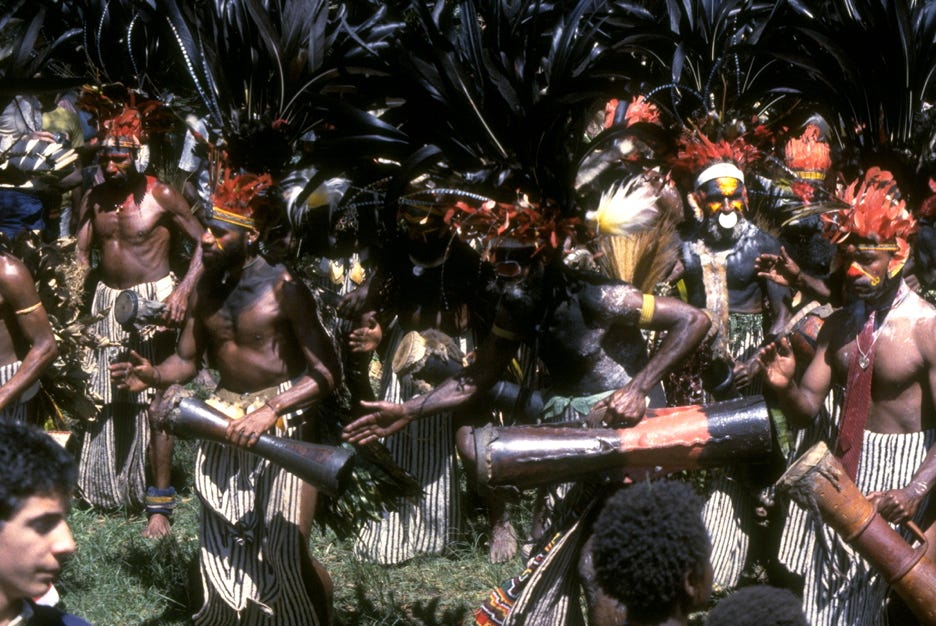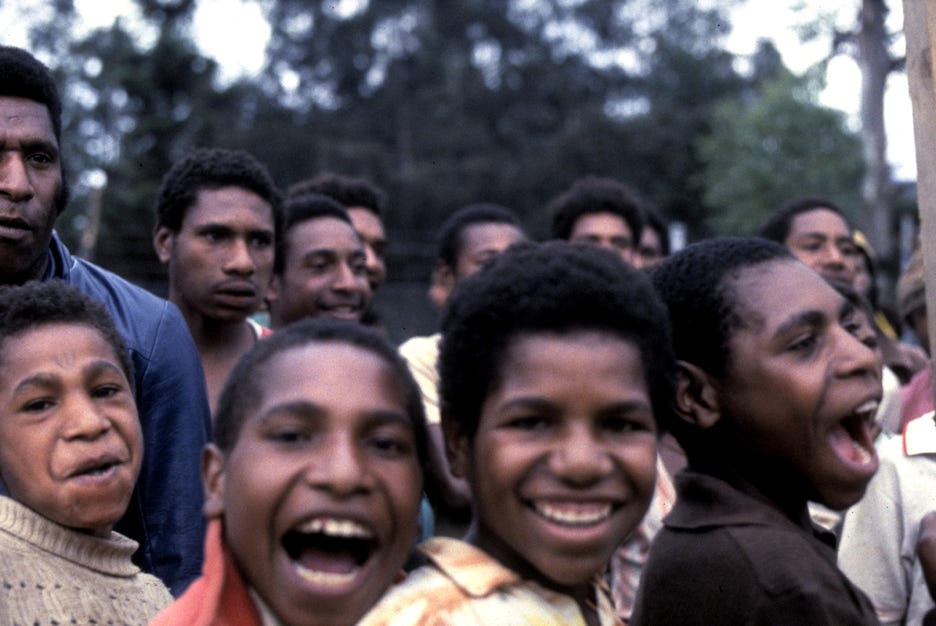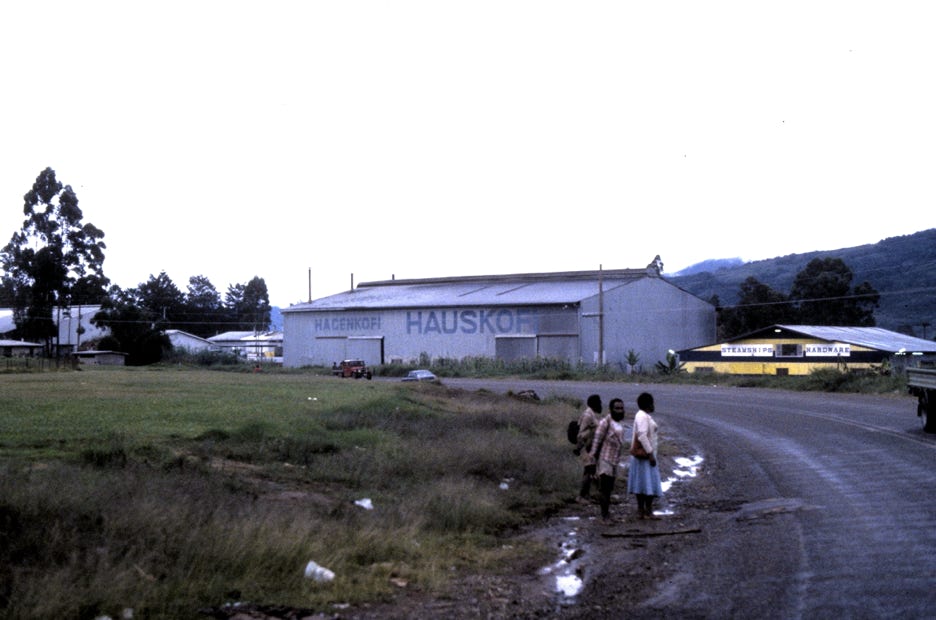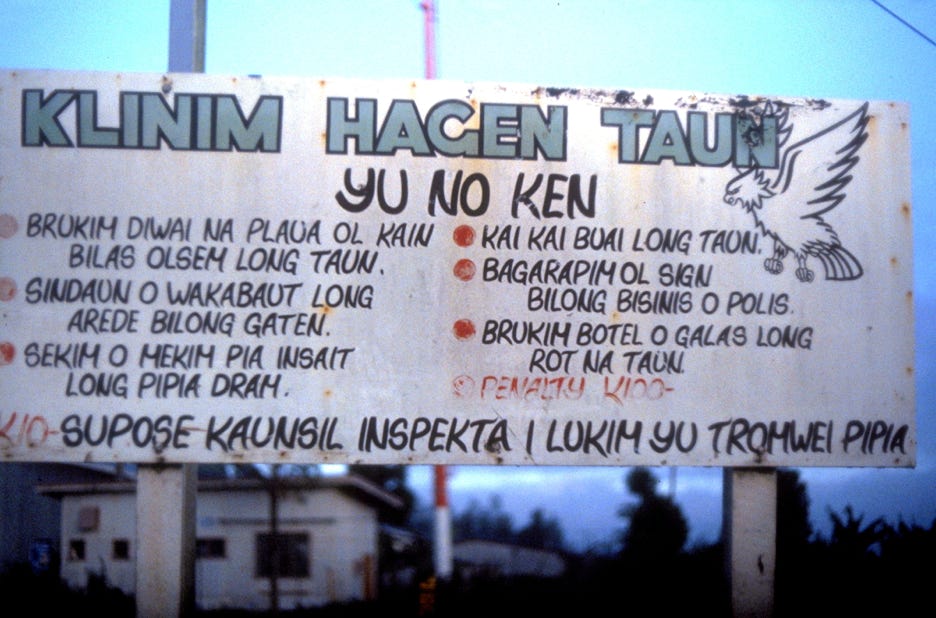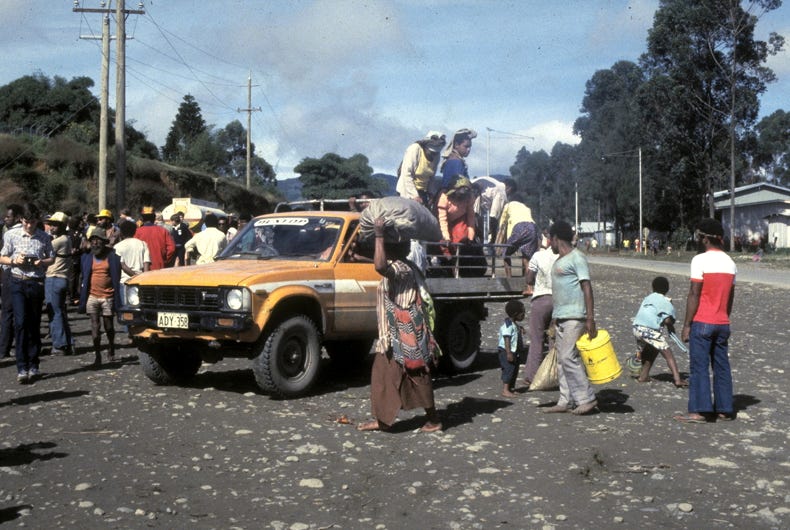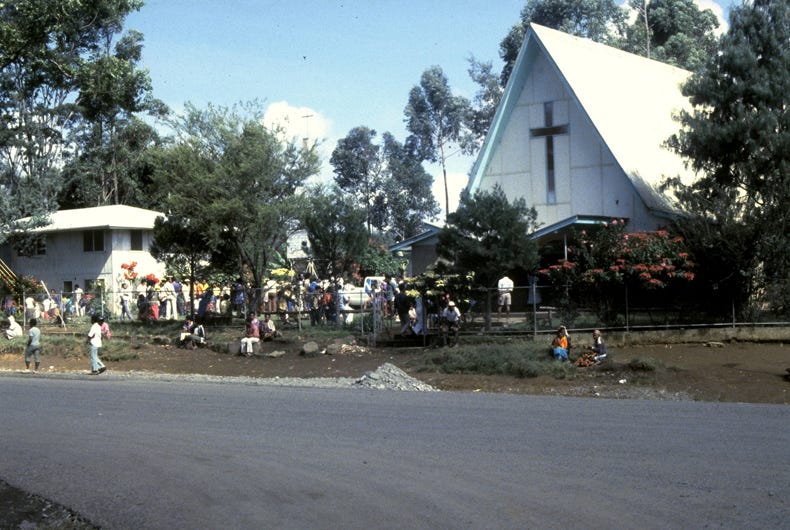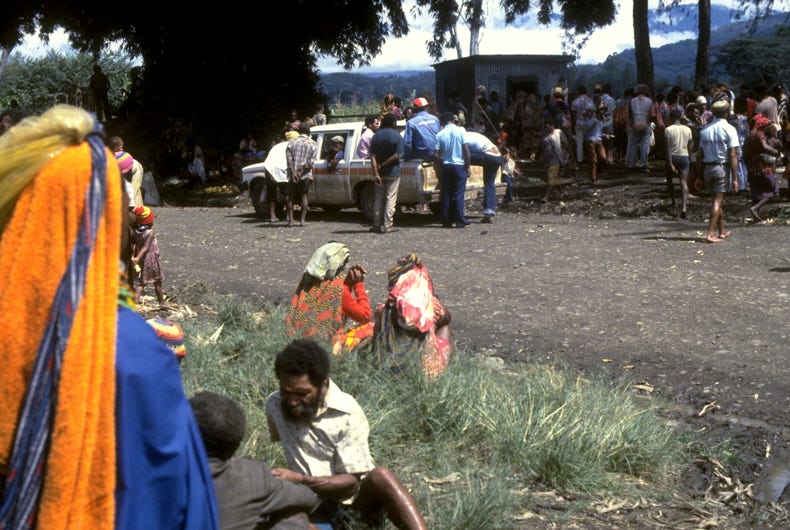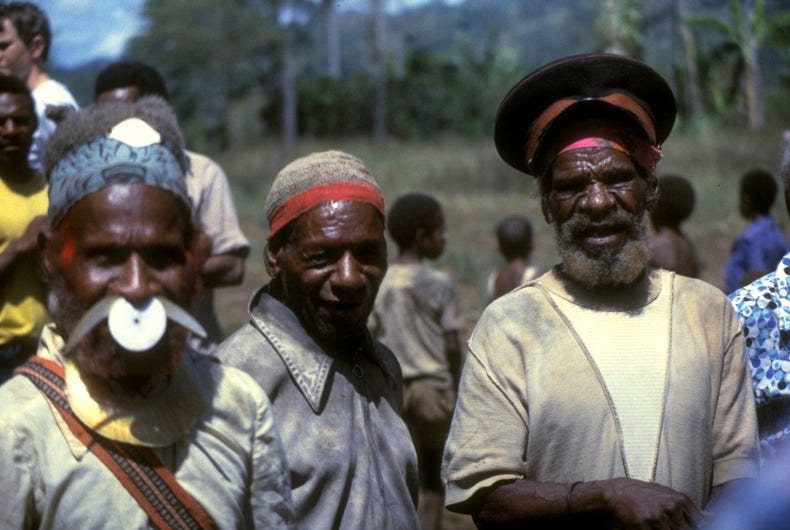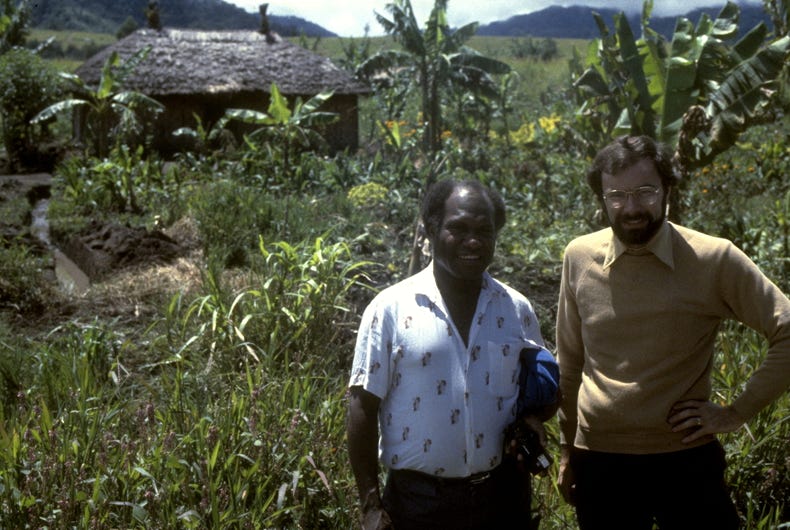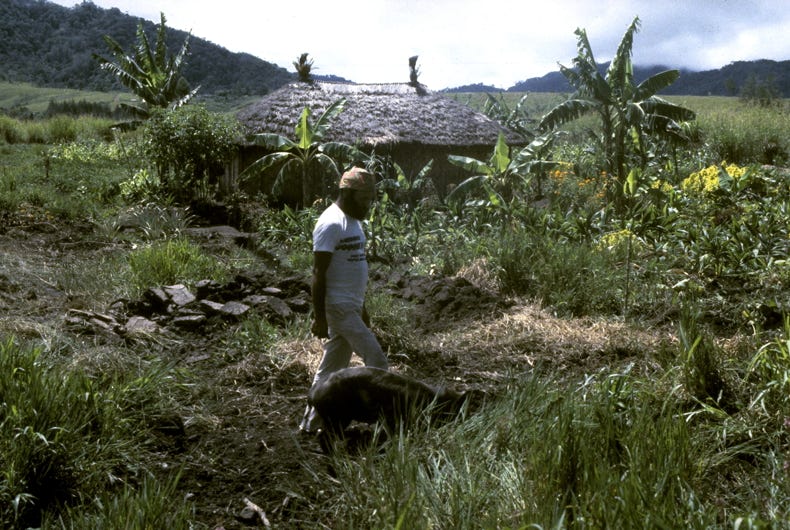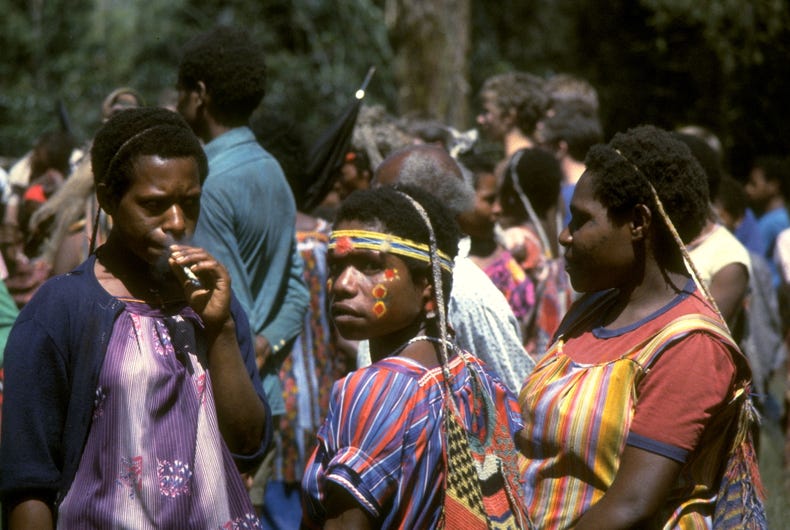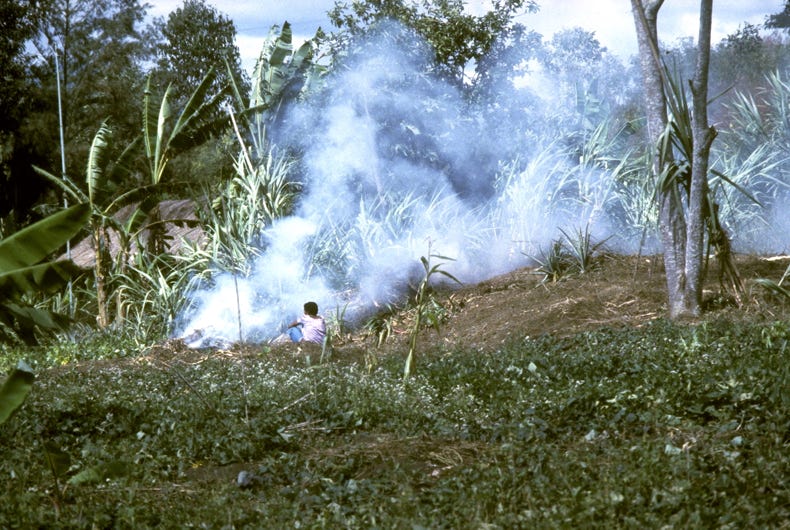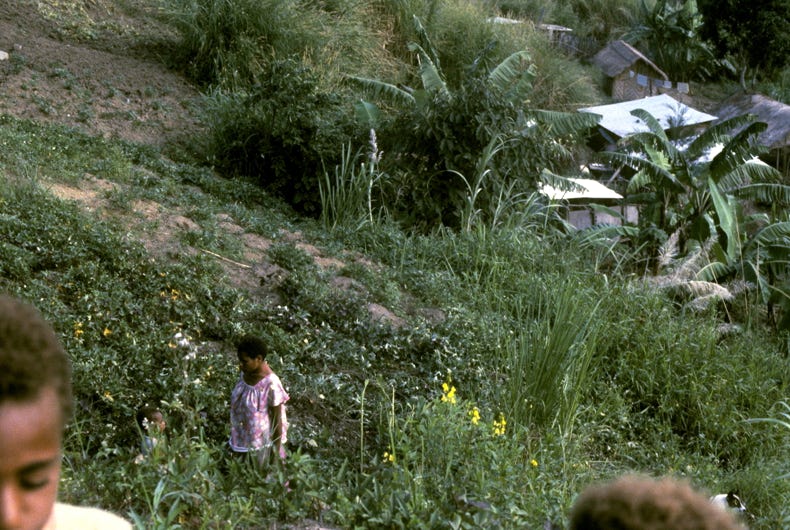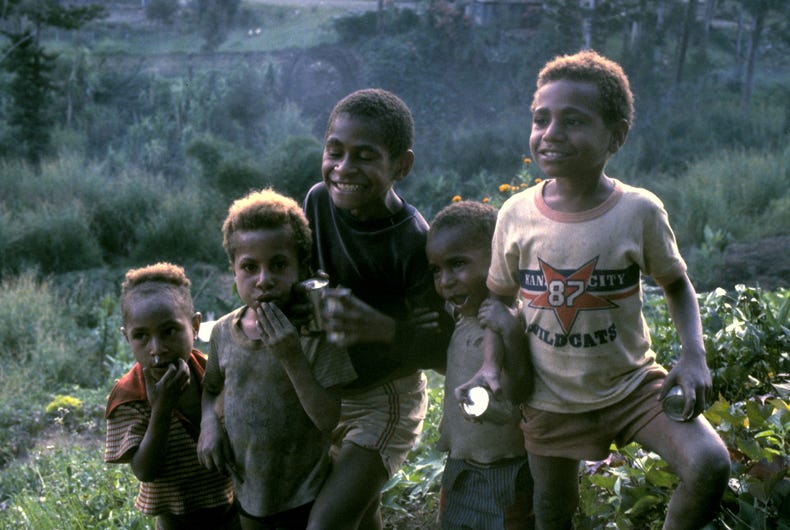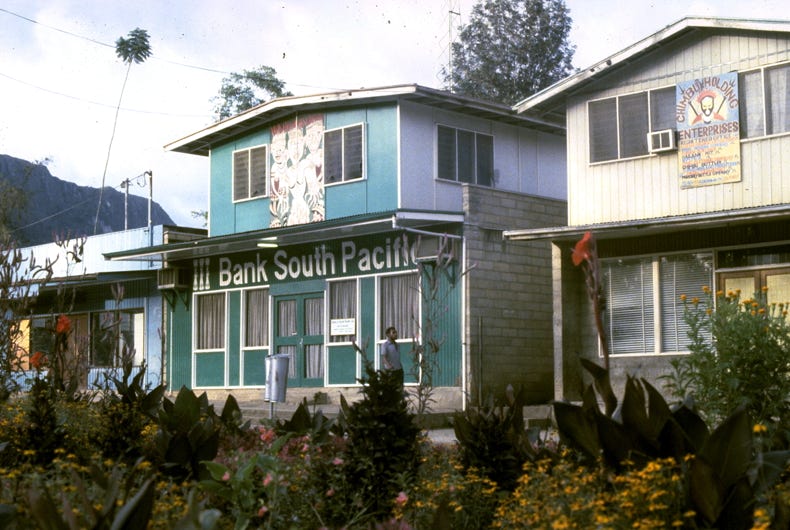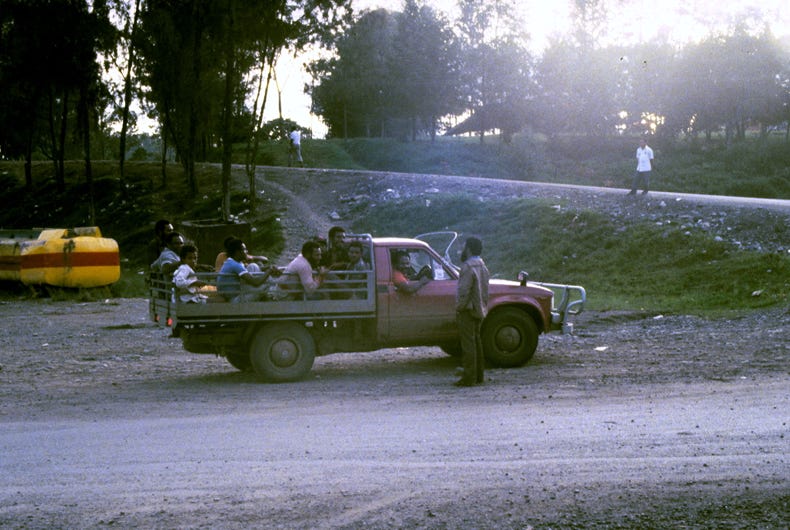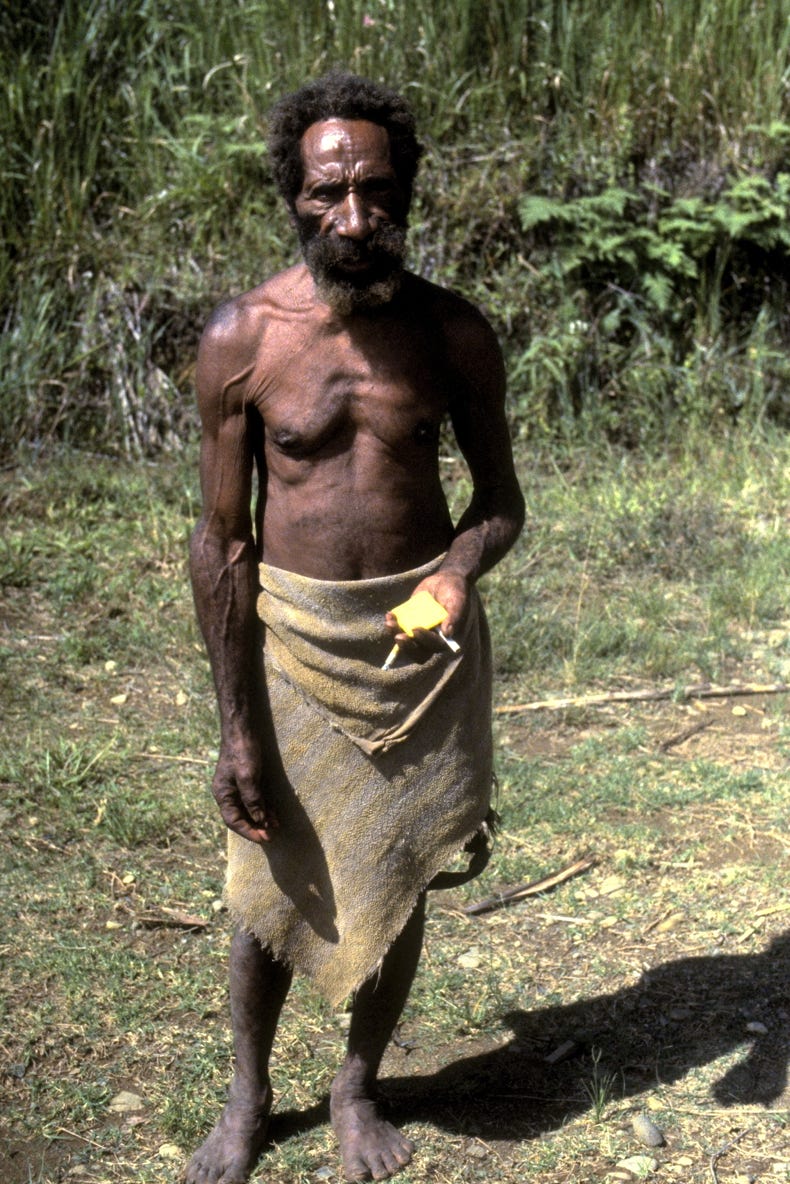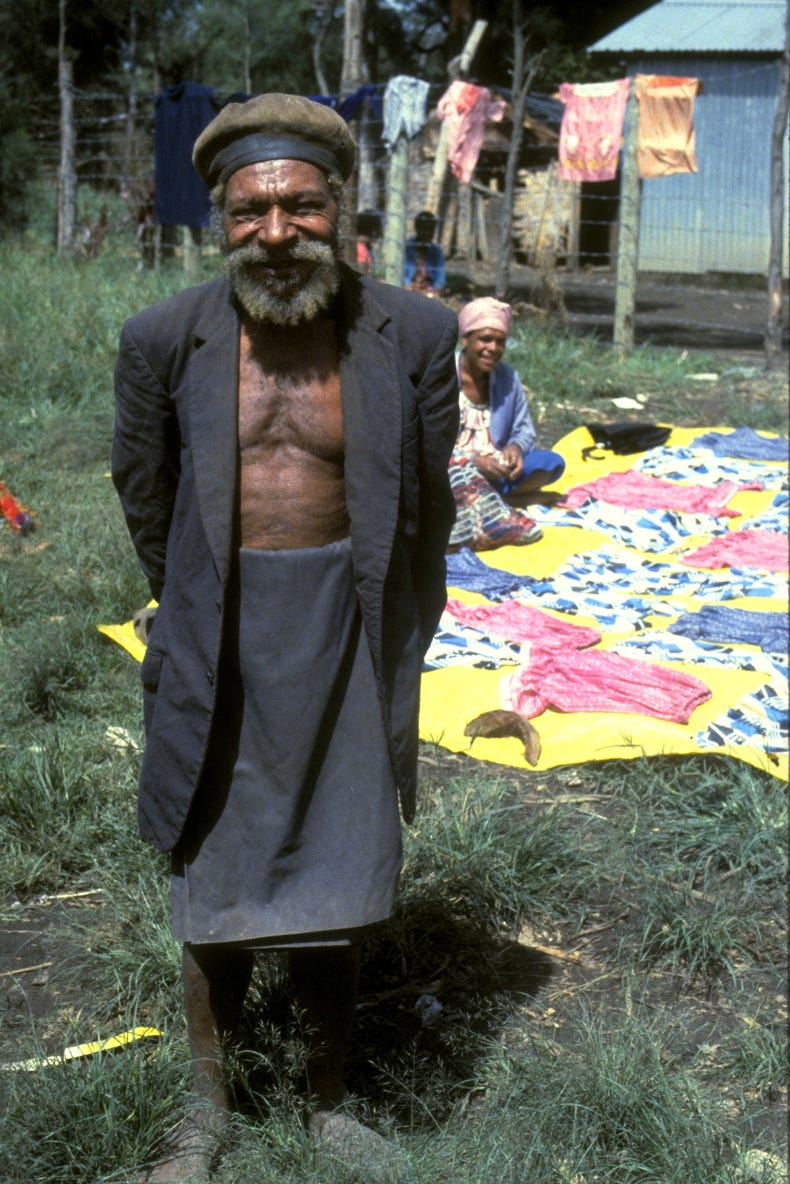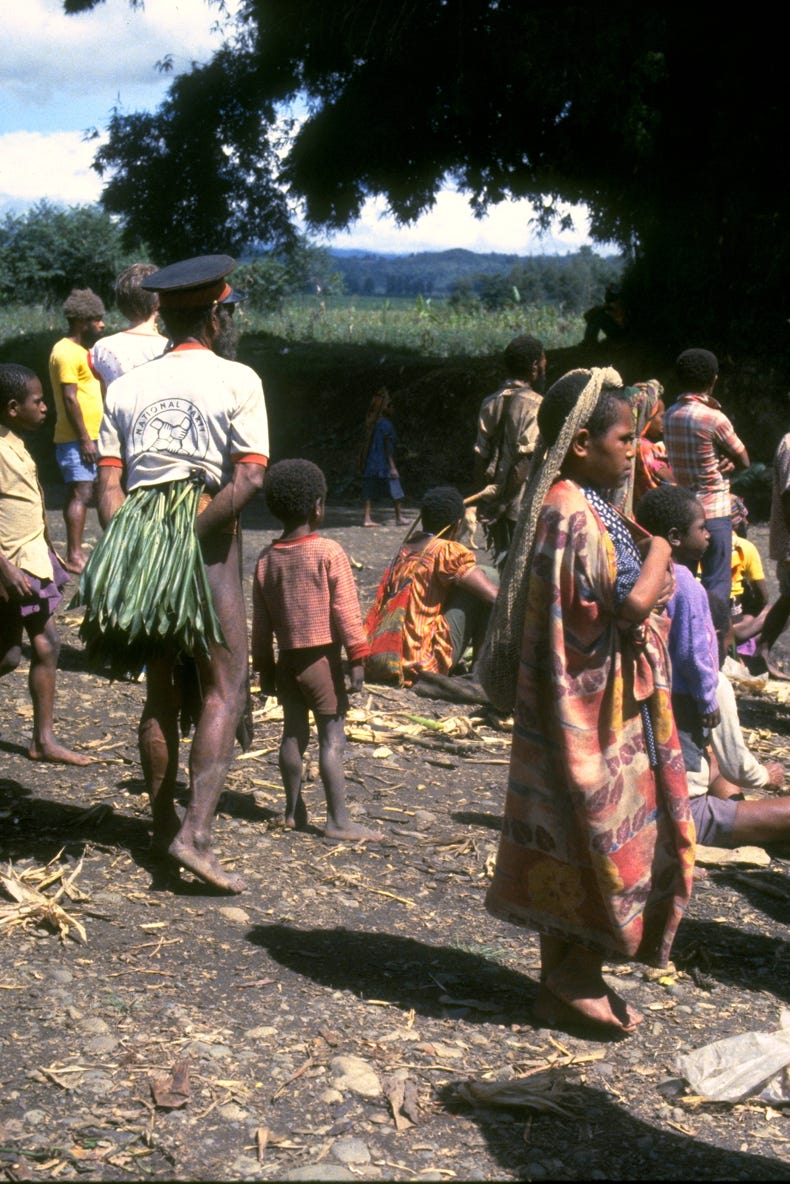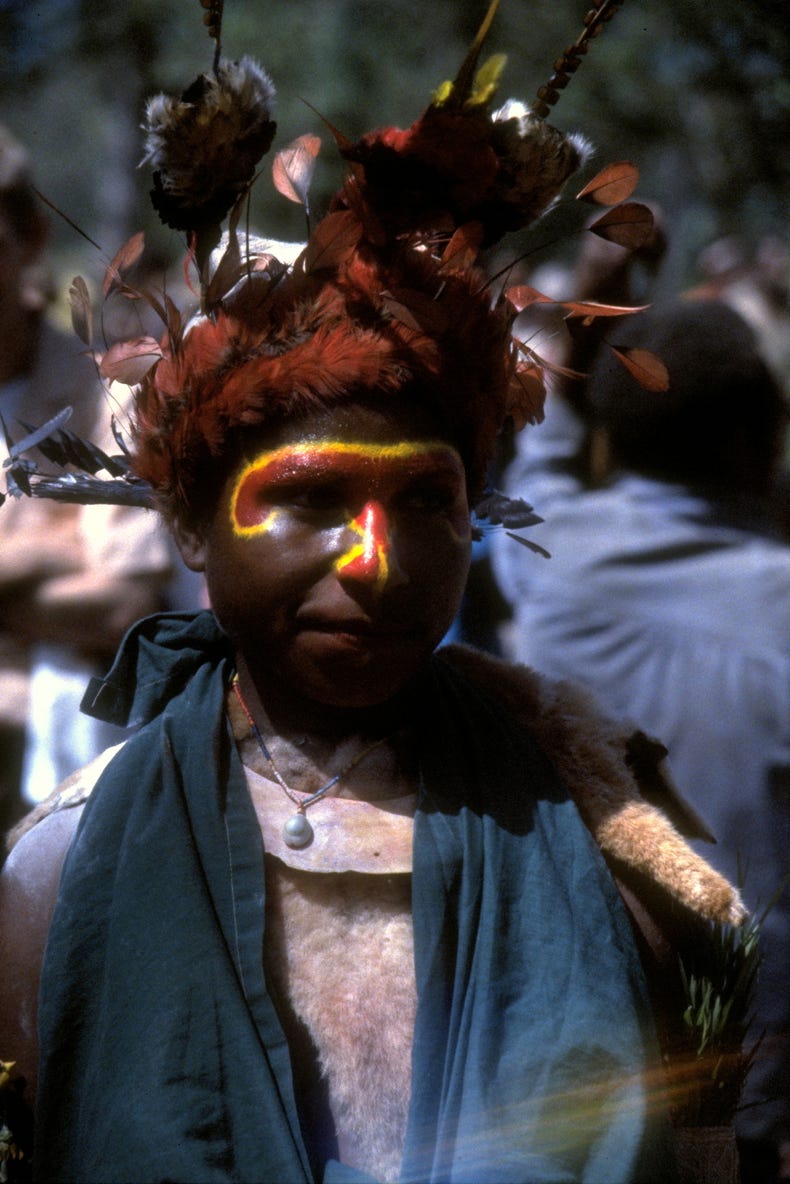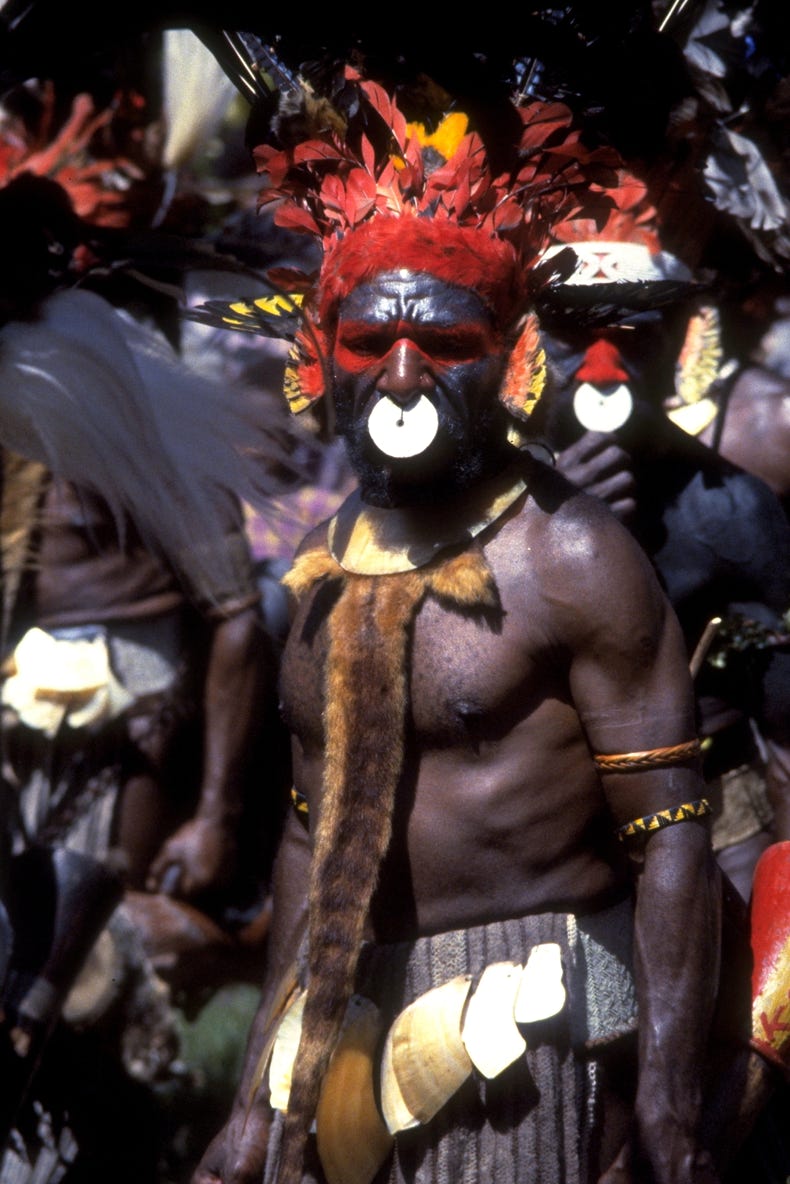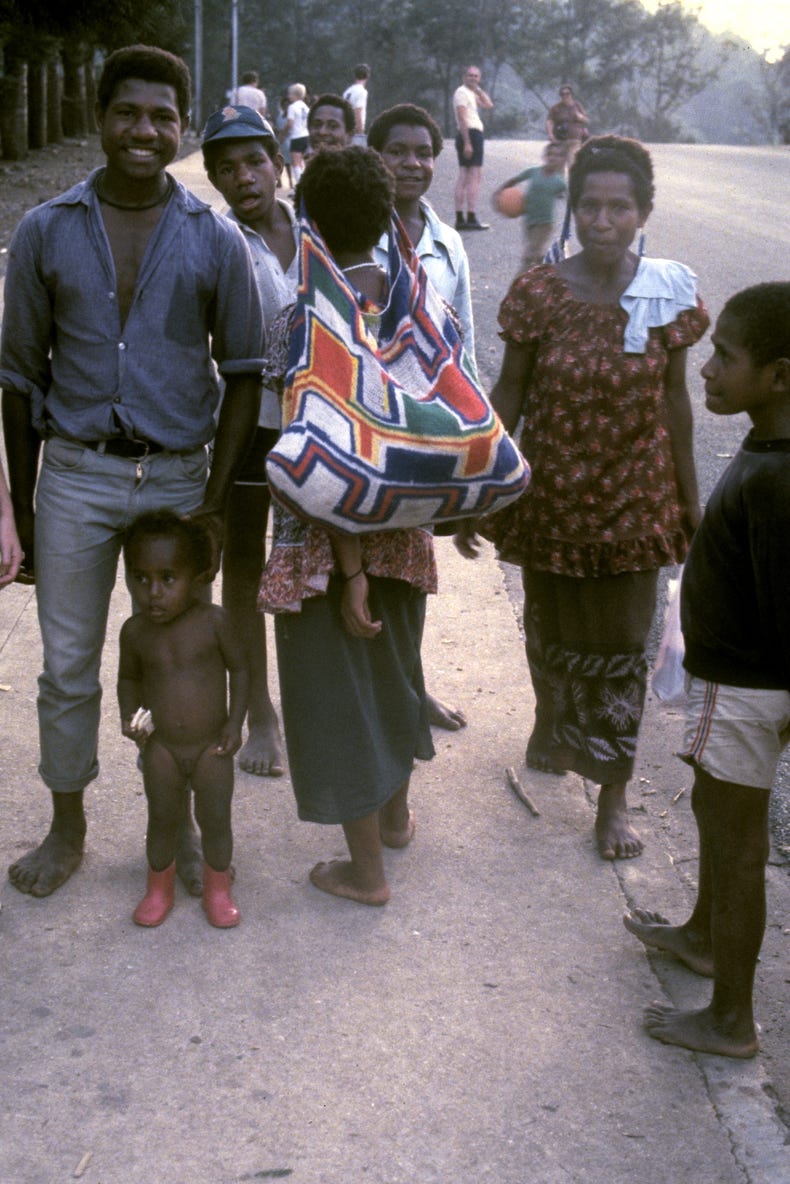
This morning the group left in three small buses for the overland drive to Kundiawa. The route chosen was the old Highlands Highway, and stops were made to visit villages on the way and for mechanical repairs. An extended stop at Gomaunch (also spelled Gumanc) village was a highlight of this drive, largely because of the genuine warmth and hospitality of the local villagers.
As part of the preparation for the study tour, I had been teaching the students the basics of Tok Pisin (Melanesian Pidgin). The students had great fun with this, and found it fairly easy to learn because of Tok Pisin’s similarities with English and its quite easy grammar. Another factor that made Tok Pisin fun was its dynamic and changing nature. For example, at the time of our visit, the word for “Helicopter” was transitioning from “miksmasta bilong jisas” (Mixmaster belonging to Jesus) to the much more mundane “helikopta”. Sadly, at the time of our visit, we were told that the Tok Pisin for white man was still “masta” and the word for white woman was “missus” – these compared with the words for local men and women which were “boi” and “meri” respectively.
Given that we were meeting so many local people each time we stopped, I wanted to learn a better greeting than the simple (but very common) “moning” for “good morning” and “apinun” for “Good Afternoon”. I was told that the latest “cool” greeting I should try was “yu okei o wia lus” (You okay, or wire loose), meaning are you feeling all right, or are you more like a radio with a loose wire that is performing properly. I tried the “cool” greeting and it worked a treat, drawing huge smiles whenever I used it.
A diversion was made to another village to witness a sing-sing (a festival with singing and dancing) being held as part of a payback for the killing of 200 pigs. The group was most impressed to witness a real sing-sing rather than a “tourist special”, and the dress of the participants was breathtaking in its beauty and local flavour, especially when combined with the colourful face painting on many dancers and observers.
As a result of the sing-sing, lunch at Tribal Tops Inn at Minj was quite late, but no-one minded. As time was getting on, we drove directly along the Highlands Highway to Chimbu Lodge at Kundiawa. Despite placing 12 students in a dormitory style accommodation, this hotel was most satisfactory. Like all hotels in the Highlands it was surrounded by a high barbed-wire fence for protection and it had the added bonus of shifting cultivation sweet potato plots right next door.
After checking in to Chimbu Lodge, we went for a walk to explore the streets around our accommodation. Not surprisingly we attracted curious looks from the local people, many of whom wanted to talk to us and find out where we had come from and why we had come to their town. At one stage, I was having a conversation with Sir Ebia Olewale, one of the founding fathers of Papua New Guinea and former Foreign Minister and Deputy Prime Minister. A PMV with nine men sitting in the back pulled up on the other side of the street – PMVs are “public motor vehicles”, which are open utilities, the standard Highlands mode of transport. The T-shirt wearing driver leant our the window and shouted out “Hey, Ebia”, with a big wave. Sir Ebia Olewale quickly interrupted our conversation, saying, “you will have to excuse me; this is the Speaker of the Parliament”, and he hurried across the road to have a chat.

